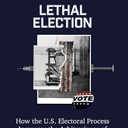The Austin American-Statesman conducted an extensive study of the quality of representation that death row inmates receive in Texas. The study concluded that:
Sheltered by an indifferent Texas Court of Criminal Appeals, lawyers appointed
to handle appeals for death row inmates routinely bungle the job, submitting
work that falls far below professional standards, frequently at taxpayer expense.
Some appeals are incomplete, incomprehensible or improperly argued. Others are
duplicated, poorly, from previous appeals.
Whatever their condition, these pieces of shoddy legal work have been
tolerated by the state’s highest criminal court for 11 years — during which
273 men and women were executed — despite a state law requiring the court to
ensure that the condemned receive competent legal help.
The court has failed in that obligation, allowing lawyers to submit sloppy,
lazy and inferior work with little oversight and no fear of consequences,
according to an Austin American-Statesman examination that raises troubling
questions about the quality of death penalty justice in the nation’s leading
execution state.
One of the appeals cited in the study was written by an appointed attorney, Toby Wilkinson, who clearly just copied portions of a letter written by his client on death row. The paper quoted the brief to the court, and noted:
“I’m just about out of carbon paper,” reads the bizarre appeal, which earned
Wilkinson $22,270 from the Texas treasury. “As soon as I get some more typing
supplies I have about thirty more errors I want … in my appeal.”
The paper described the response of the Texas Court of Criminal Appeals to the dismal quality of representation in many cases as “feeble.”
(Chuck Lindell, Austin American-Statesman, Oct. 29, 2006; two-part series, “Writs Gone Wrong,” Oct. 29 – 30, 2006). See Representation and Arbitrariness.



